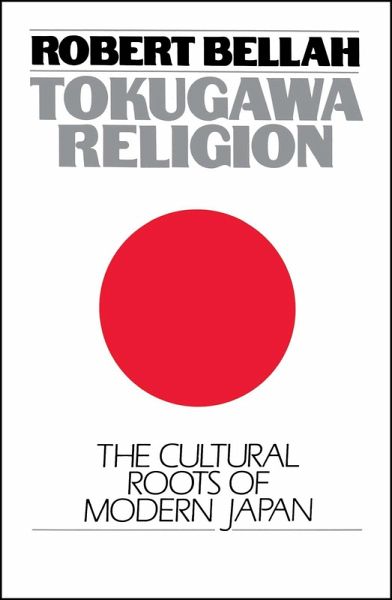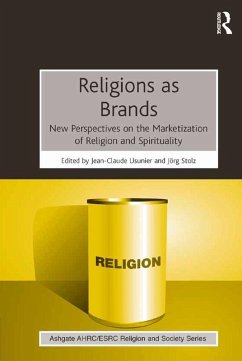
Tokugawa Religion (eBook, ePUB)

PAYBACK Punkte
0 °P sammeln!
Robert N. Bellah's classic study, Tokugawa Religion does for Japan what Max Weber's The Protestant Ethic and the Spirit of Capitalism did for the West. One of the foremost authorities on Japanese history and culture, Bellah explains how religion in the Tokugawa period (160-1868) established the foundation for Japan's modern industrial economy and dispels two misconceptions about Japanese modernization: that it began with Admiral Perry's arrival in 1868, and that it rapidly developed because of the superb Japanese ability for imitation. In this revealing work, Bellah shows how the native doctri...
Robert N. Bellah's classic study, Tokugawa Religion does for Japan what Max Weber's The Protestant Ethic and the Spirit of Capitalism did for the West. One of the foremost authorities on Japanese history and culture, Bellah explains how religion in the Tokugawa period (160-1868) established the foundation for Japan's modern industrial economy and dispels two misconceptions about Japanese modernization: that it began with Admiral Perry's arrival in 1868, and that it rapidly developed because of the superb Japanese ability for imitation. In this revealing work, Bellah shows how the native doctrines of Buddhism, Confucianism and Shinto encouraged forms of logic and understanding necessary for economic development. Japan's current status as an economic superpower and industrial model for many in the West makes this groundbreaking volume even more important today than when it was first published in 1957. With a new introduction by the author.
Dieser Download kann aus rechtlichen Gründen nur mit Rechnungsadresse in A, B, BG, CY, CZ, D, DK, EW, E, FIN, F, GR, HR, H, I, LT, L, LR, M, NL, PL, P, R, S, SLO, SK ausgeliefert werden.













